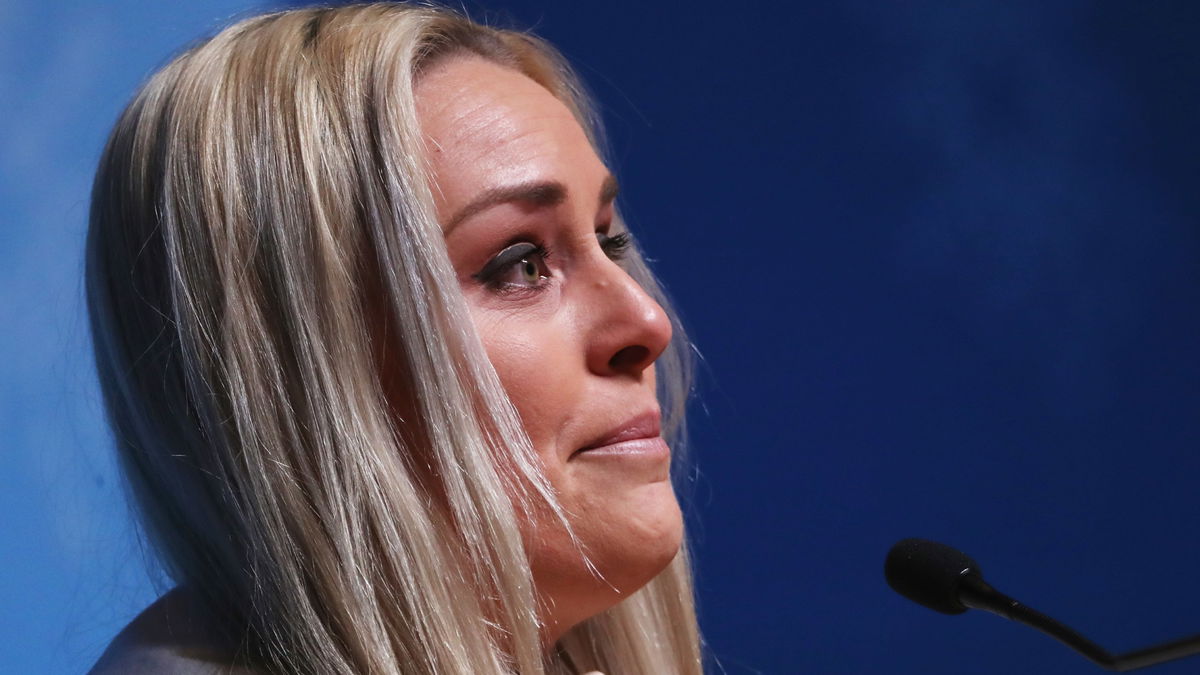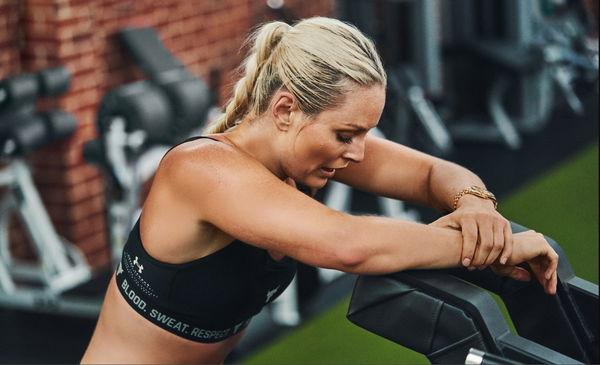
Imago
Credits Instagram/@lindseyvonn

Imago
Credits Instagram/@lindseyvonn
Lindsey Vonn came roaring back at 40, flying down the icy twists of the World Cup finals to grab a second place in the super-G at the Stifel Sun Valley World Cup Finals on March 23, her first podium in six years this year. The crowd roared. She raised her poles in defiance. After a partial knee replacement, after all the doubters and the brutal toll of time, Vonn did what she always has: rise. “One foot in front of the other,” she said. Vintage Lindsey. But there was a time, a moment so dark, it nearly crushed her spirit. Before the Olympic medals, before the 82 World Cup wins, before the fame.
Watch What’s Trending Now!
Well! Back in 2002, the 17-year-old had just competed in her first Olympics at Salt Lake City. Instead of celebrating, she sat alone in an airport terminal, crying into a journal she had just bought. The mountain she faced next wasn’t covered in snow — it was buried in silence, shame, and a darkness she didn’t yet understand! In the summer of 2002, Vonn had been living in Park City [Utah] when everything began to fracture.
“That summer of 2002, I was living out in Park City when my parents told me they’d started the process of getting a divorce,” she recalled in her book Rise: My Story. “First, my mom called to tell me it was happening, and I remember thinking it was probably just a fight and they would bounce back from it. Then, a few weeks later, my dad called to say the same, which confirmed that it was real.”
ADVERTISEMENT
Her parents, Alan Kildow and Linda Krohn, had been together for nearly two decades, raising Lindsey and her four siblings in Minnesota. Alan, a former junior ski racer turned lawyer, had been a powerful force in Lindsey’s early skiing journey. His separation from Linda came at a time when Vonn was already balancing the intense demands of elite sport.

ADVERTISEMENT
“I was in the airport on my way to Mount Hood for the U.S. Ski Team Development Camp when I heard the news from my dad, and I sat in the terminal and cried.” Mount Hood was a significant training ground for young American skiers, and Lindsey Vonn had just returned from the Salt Lake City Olympics, where she competed at just 17. The timing of the divorce news, just before an intense camp, compounded her emotional distress.
ADVERTISEMENT
“Before I boarded my flight, I went to the airport bookstore and bought a journal.” That journal became her first outlet. In the years that followed, writing would serve as a coping mechanism during the emotional highs and lows of her career, as she later detailed in her 2022 memoir Rise: My Story.
“Skiing became the place I turned to avoid dealing with the difficulties in other parts of my life.” After the divorce, Vonn focused even more intensely on skiing. She moved in with fellow skier Thomas Vonn and later married him in 2007, seeking stability in structure — even as unspoken emotional wounds deepened.
ADVERTISEMENT
Lindsey Vonn struggled with depression
At first, Lindsey Vonn didn’t have the words to name what she was going through. She just knew something felt off. “In a way, it’s like you stop being yourself and turn into a person you don’t recognize,” she wrote in her memoir Rise: My Story. “You feel hopeless, kind of like you’re falling deeper and deeper into a black pit and you’re powerless to stop it. You fight hard to get out of it, but no matter how much you try, you can’t move.” Her motivation collapsed. Even skiing—her lifelong passion—took a back seat.

ADVERTISEMENT
She stayed inside, avoided people, and convinced herself it was all temporary. “I figured my mood was due to external factors and would right itself soon enough,” she recalled. But it didn’t. A friend’s similar struggle finally nudged her to seek help. Sitting in a doctor’s office, flipping through outdated magazines, she expected to be told nothing was wrong. Instead, she heard, “Your symptoms are very consistent with depression.”
Top Stories
Baker Mayfield Airs Dirty Laundry With Kevin Stefanski After Former HC Lost Faith in QB

Phil Mickelson Has the Last Laugh After PGA Tour Protege Rejected His LIV Golf Offer

‘Disturbing’ Fake Messages Force Amanda Balionis to Issue Urgent Warning

Scottie Scheffler Takes Side With Blunt 12-Word Message Days After Brooks Koepka’s Return Announcement

“Hard Being a Black Woman”: Coco Gauff on Donald Trump’s Administration

ESPN’s Troy Aikman Bids Goodbye as NFL Broadcasting Season Ends for the Network

That moment cracked the shell of denial. Still, shame lingered. “Even once the words were out, I didn’t fully believe him,” Vonn admitted. “Just because depression was common didn’t mean that I wouldn’t be judged.” She initially refused therapy—life on the road made consistency tough, and emotionally, she wasn’t ready. But treatment helped stabilize her. “Once I began treatment, everything felt brighter… The cloud began to lift, and I started to feel a sense of purpose.”
ADVERTISEMENT
In 2012, after her divorce, Vonn finally chose to speak publicly. “I felt like there was a lot that I needed to unload,” she said. “Once I did, it was a huge relief… I realized that I wasn’t the only person dealing with it.” According to the World Health Organization report (2023), depression affects over 280 million people globally. Vonn’s story isn’t rare—but her willingness to share it reminds us that even the strongest among us can struggle, and that healing often begins with honesty
ADVERTISEMENT
ADVERTISEMENT
ADVERTISEMENT